- Home
- slideshows
- miscellaneous
- Forget San Francisco - these 6 global cities have thriving tech hubs that could make them the next Silicon Valley
Forget San Francisco - these 6 global cities have thriving tech hubs that could make them the next Silicon Valley
Tel Aviv, Israel, a growing tech hub, has seen a boom in luxury real estate.

Berlin, Germany, has a thriving tech scene thanks to its bounty of affordable property.
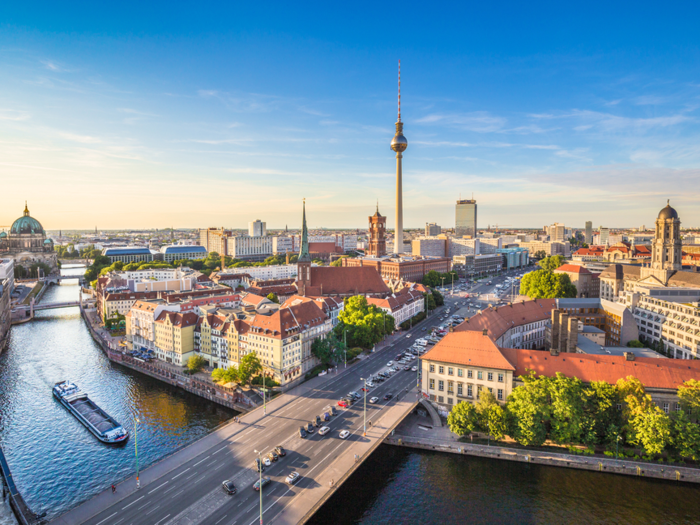
There's been a surge in technology companies based in Berlin, Sam Shead previously reported for Business Insider. As James Cook wrote, Berlin is "home to a mixture of hackers, privacy experts, scientists, and video companies that are making waves in the tech scene."
Tech giants like Apple and Facebook have offices in the city, which is also home to local success stories like music streaming service SoundCloud and to-do list App Wunderlist. Google opened its "Campus Berlin" tech hub in 2017 because Berlin's startup scene grew so rapidly over the last five years, setting it on track to become one of Europe's leading ecosystems.
A number of UK tech startups relocated to the relatively cheap city following Brexit, which could inhibit their ability to access the European market and make it difficult for them to hire, The Financial Times reported.
From 2015 to 2017, Berlin witnessed a 9% increase in startups, higher than any European city, reported Nicholas Borsotto Machado Monteiro for Entrepreneur, citing Creditsafe. The city accounted for 70% of total investments in German startups in 2017, and it was named a banner year for startups by Ernst & Young.
While tech booms usually lead to increased real-estate prices, Berlin had so much affordable property available that companies and their employees were able to easily snap up spaces, Monteiro reported. With such affordability, the city has been able to easily attract global talent.
Shenzhen, China, is the country's main tech hub.
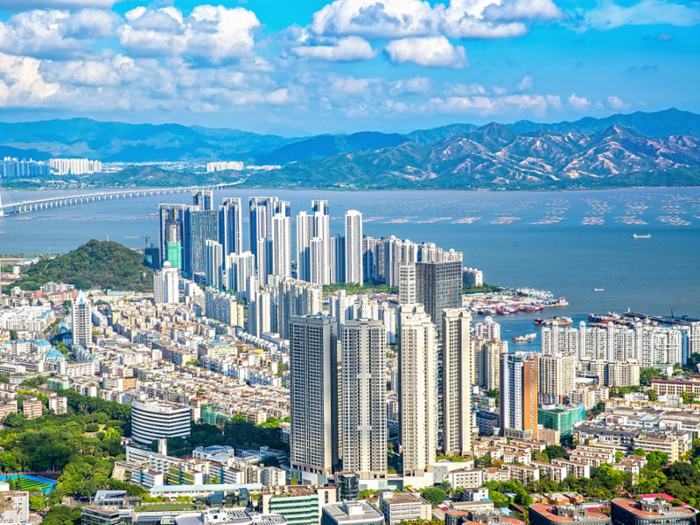
Matt Rivers of CNN called Shenzhen "China's Silicon Valley."
With more than 14,000 high-tech firms, 3,000 of which were established in 2018, Shenzhen's tech industry accounts for nearly 40% of the city's GDP, according to Mansion Global. There are five tech giants fueling Shenzhen's tech hub, and two of them — Tencent Holdings and Huawei Technologies — collectively employ 234,000 people.
The city is part of the Chinese government's Greater Bay Area initiative, a project to develop technology and innovation growth in the country to rival California's Silicon Valley, reported BBC.
The tech scene is contributing to a rise in wealth among some of its residents, according to Wealth-X's 2019 Billionaire Census report. "Shenzhen is a big part of the reason that China has been minting new billionaires at a rate of one per week," Carrie Law, CEO of Juwai.com, a real-estate portal for Chinese buyers, told Mansion Global.
The city's urbanization is driving a boom in luxury property developments while also changing what luxury looks like — smaller properties focusing on amenities and convenience are being favored over villas and townhouses. Shenzhen is now one of the top five cities in the world with the most expensive housing, reported Alice Woodhouse of The Financial Times.
Lisbon, Portugal, has an emerging startup scene thanks to accelerator funding and plenty of coworking spaces.
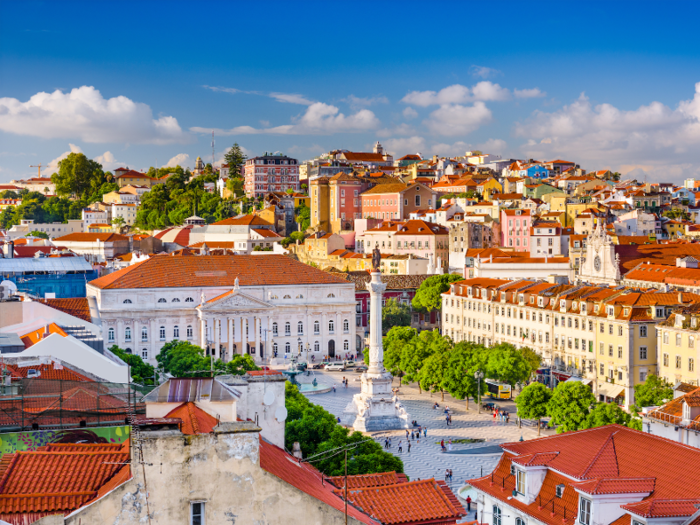
Lisbon's startup scene emerged five to 10 years ago — today, it's set to become a leading tech hub in Europe, according to Mansion Global.
In 2016, the Portuguese government created a national network of tech hubs and startups in Lisbon thanks to the StartUP Voucher initiative, which offers a yearlong fellowship to 400-plus entrepreneurs, reported Heather Farmbrough for Forbes. They also set up a $225 million venture capital fund to increase foreign investment in startups.
From 2014 to 2016, 700 companies in the high-tech industry were established in Lisbon. Lisbon has 32 tech scale-ups — companies that have raised just under $1 million (USD), which make up nearly half of the companies in the city, according to a Startup Europe report.
A former army food factory will be reconstructed into a huge startup campus, Hub Creativo Beato, and Google recently announced plans to launch an innovation center just outside the city (date unknown), according to Mansion Global.
Tech workers are revitalizing Lisbon's rundown buildings in up-and-coming areas, transforming them into hubs and coworking spaces, as well as affordable places to live.
Bengaluru, India, has evolved from cheap labor to booming startups.
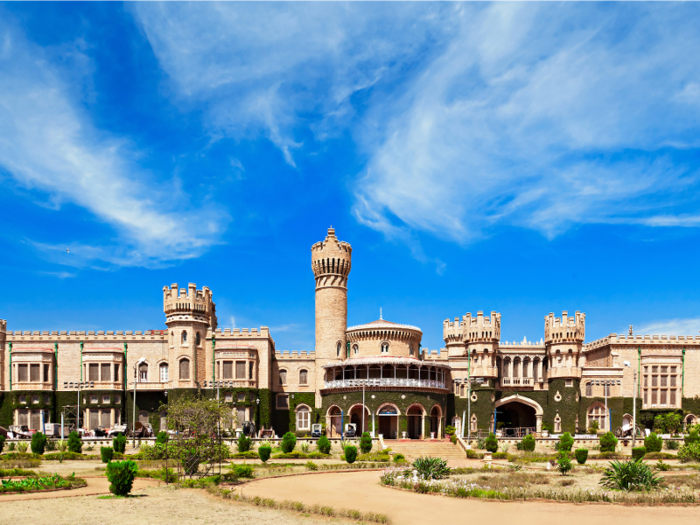
In its 2019 Wealth Report, estate agency Knight Frank referred to Bengaluru as "India's answer to Silicon Valley," thanks to the city's variety of tech sectors across artificial intelligence, food tech, fintech, and robotics. More than 400 multinational tech companies, like Microsoft and Samsung, have offices there. It's also home to local companies like Infosys and Wipro.
"The tech scene and entrepreneurial spirit in Bengaluru are booming," Niketh Sabbineni, a local tech entrepreneur, told Rachel Hall of The Guardian. India's IT industry began here 25 years ago — in 2017, it was named the world's most dynamic city by the World Economic Forum, Hall wrote.
In the beginning, the tech scene included foreign companies looking to cut costs, which gave the city a reputation for cheap labor, according to Hall. Now, it's evolved to take on more of a startup feel.
The city's GDP is expected to grow by nearly 60% in the next five years and the number of ultra-high-net-worth individuals is expected to grow by 40% in the same time period, according to the Knight Frank report, citing Oxford Economics data.
Stockholm, Sweden, is home to plenty of coders and unicorns, leading the tech industry in Scandinavia.
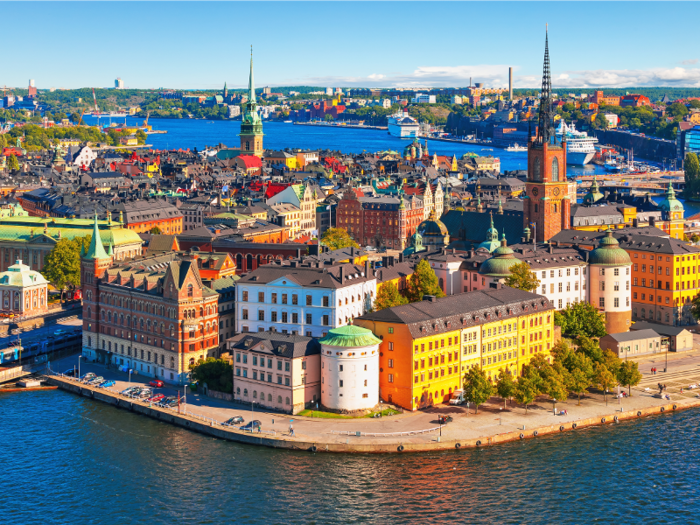
Dennis Mitzner of Tech Crunch called Sweden the "tech superstar of the north." Stockholm — where coders comprise 18% of the workforce — is creating a second Silicon Valley in Scandinavia, reported Ben Schiller for Fast Company.
It produces the highest number of unicorns per capita of any global city outside of Silicon Valley, reported Forbes, and it was ranked the second-most prolific tech hub in the world by VC firm Atomico.
Stockholm's tech scene emerged in 2009 — in just five years, investment in the city's technology industry tripled to roughly $377 million, reported Max Benwell for The Independent. Home to more than 22,000 companies, the city has birthed successful global companies such as music-streaming service Spotify and gaming company King.
The booming tech industry has benefited from the Swedish government's investment in high-speed internet, and its daycare system, which enables flexibility for entrepreneurial families, according to Benwell.
Stockholm "now has its own personal identity, in the same way San Francisco has Silicon Valley," he wrote.
Popular Right Now
Popular Keywords
Advertisement